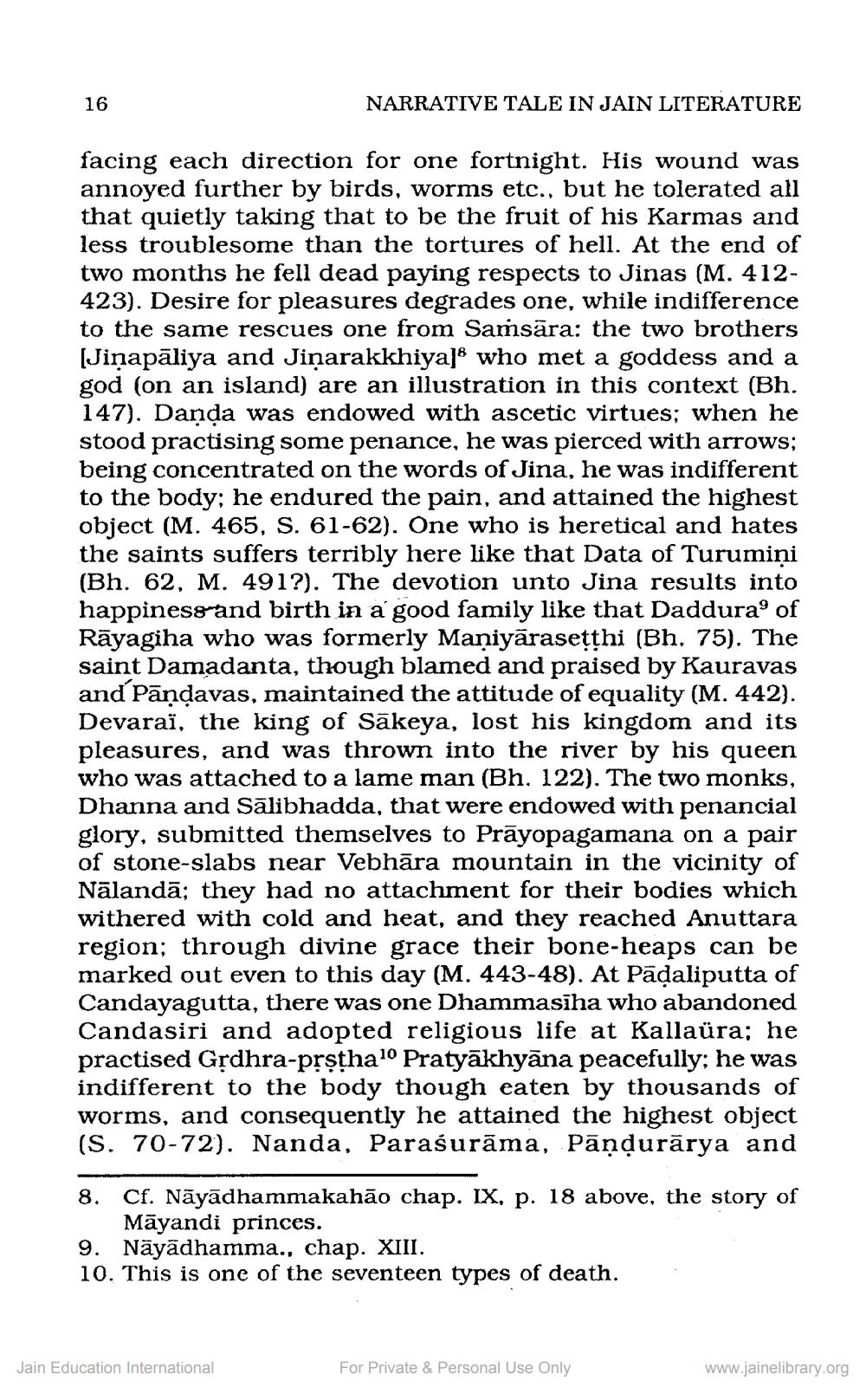________________
16
NARRATIVE TALE IN JAIN LITERATURE
facing each direction for one fortnight. His wound was annoyed further by birds, worms etc., but he tolerated all that quietly taking that to be the fruit of his Karmas and less troublesome than the tortures of hell. At the end of two months he fell dead paying respects to Jinas (M. 412423). Desire for pleasures degrades one, while indifference to the same rescues one from Samsāra: the two brothers (Jinapāliya and Jinarakkhiya) who met a goddess and a god (on an island) are an illustration in this context (Bh. 147). Danda was endowed with ascetic virtues; when he stood practising some penance, he was pierced with being concentrated on the words of Jina, he was indifferent to the body; he endured the pain, and attained the highest object (M. 465, S. 61-62). One who is heretical and hates the saints suffers terribly here like that Data of Turumiņi (Bh. 62, M. 491?). The devotion unto Jina results into happiness and birth in a good family like that Daddura' of Rāyagiha who was formerly Maniyārasetthi (Bh. 75). The saint Damadanta, though blamed and praised by Kauravas and Pandavas, maintained the attitude of equality (M. 442). Devaraï, the king of Sākeya, lost his kingdom and its pleasures, and was thrown into the river by his queen who was attached to a lame man (Bh. 122). The two monks, Dhanna and Sālibhadda, that were endowed with penancial glory, submitted themselves to Prāyopagamana on a pair of stone-slabs near Vebhāra mountain in the vicinity of Nalandā; they had no attachment for their bodies which withered with cold and heat, and they reached Anuttara region; through divine grace their bone-heaps can be marked out even to this day (M. 443-48). At Pāďaliputta of Candayagutta, there was one Dhammasīha who abandoned Candasiri and adopted religious life at Kallaüra; he practised Gțdhra-prsthalo Pratyākhyāna peacefully; he was indifferent to the body though eaten by thousands of worms, and consequently he attained the highest object (S. 70-72). Nanda, Parasurāma, Pāndurārya and
8. Cf. Nāyādhammakahāo chap. IX, p. 18 above, the story of
Māyandi princes. 9. Nāyādhamma., chap. XIII. 10. This is one of the seventeen types of death.
Jain Education International
For Private & Personal Use Only
www.jainelibrary.org




